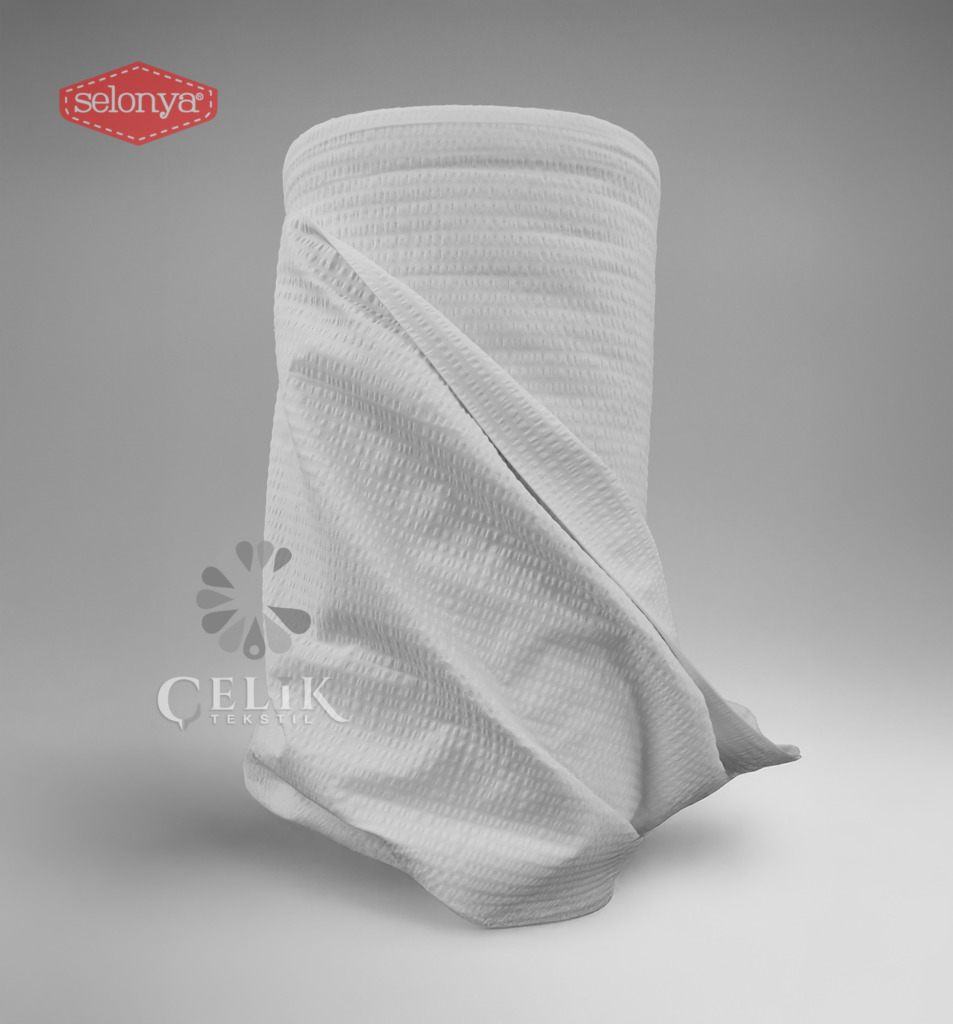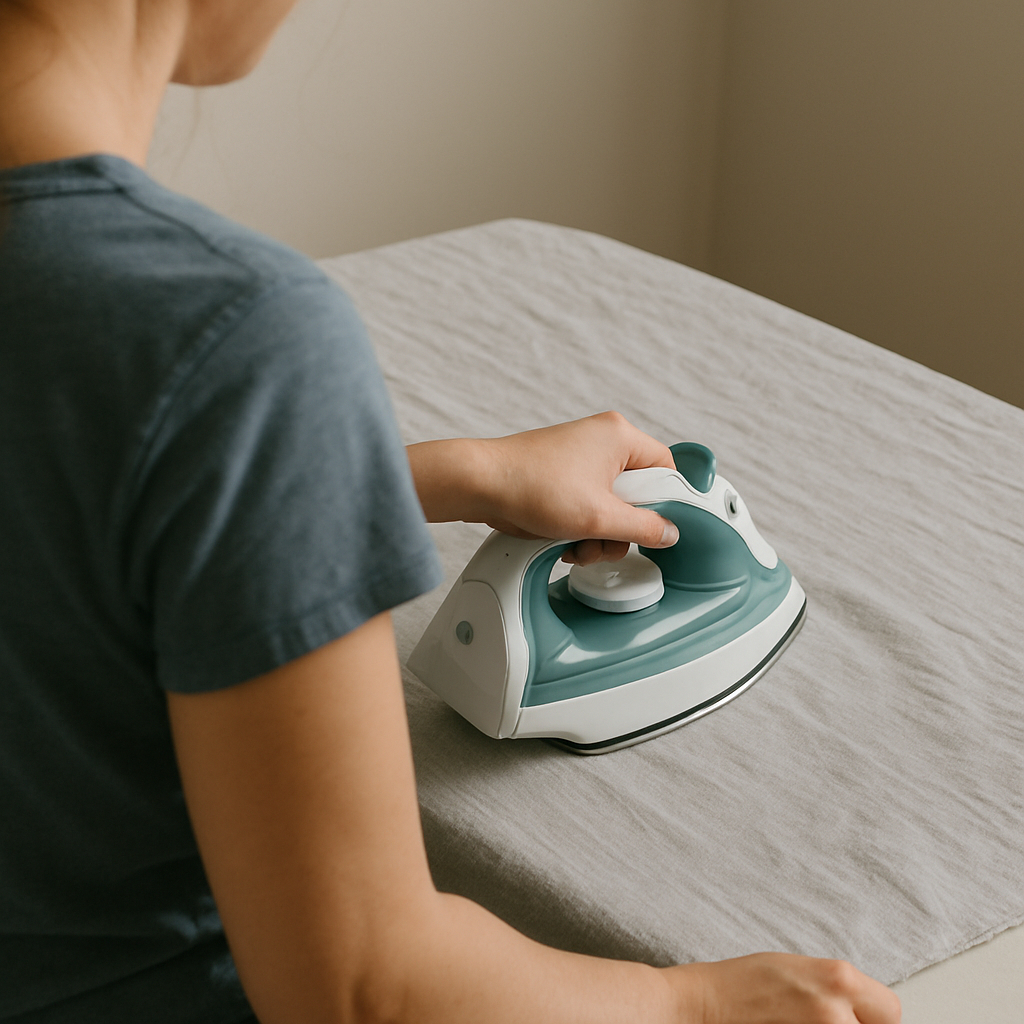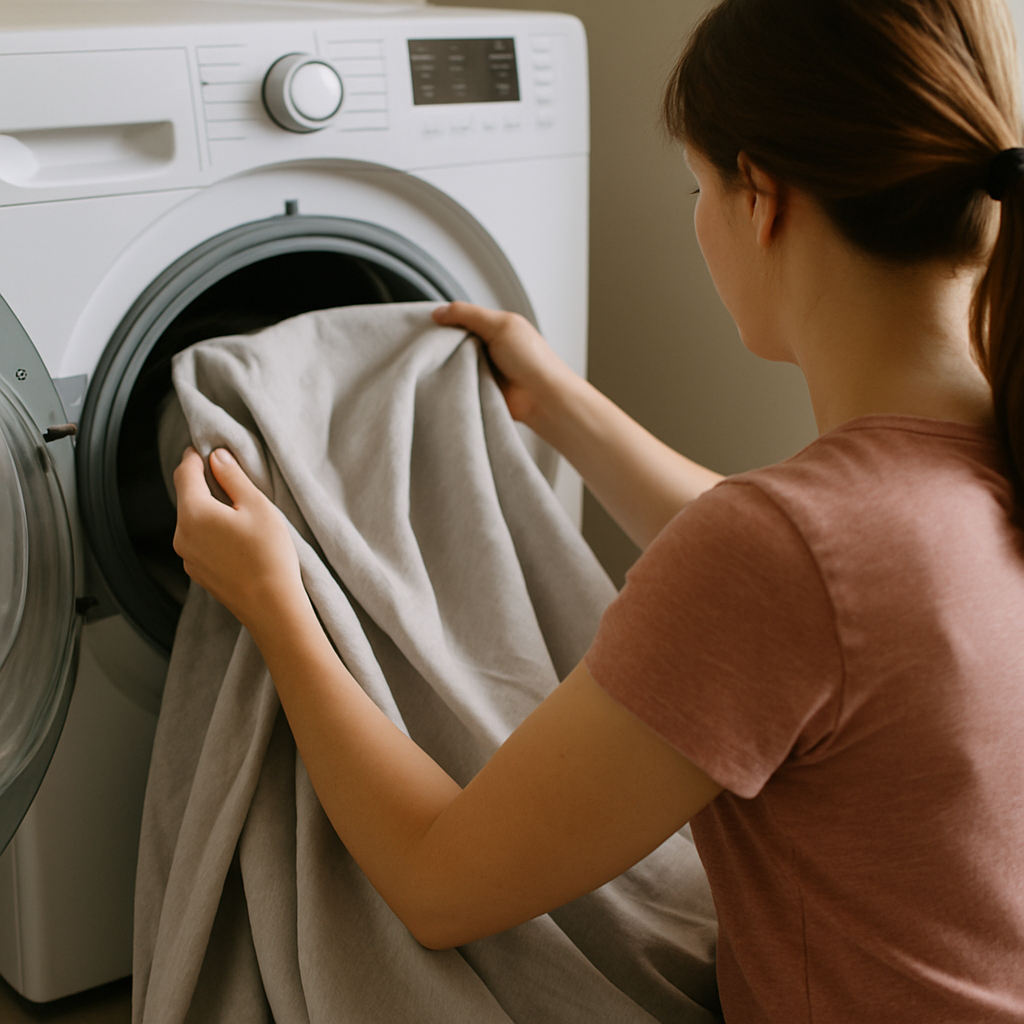How to Properly Wash and Iron Flannel, Duck and Gofre Fabrics
When it comes to maintaining the beauty, texture, and longevity of your bed sheets, bed covers, and other home textiles, understanding how to wash and iron them properly is essential. Different fabrics react differently to water, heat, and detergents, and using the wrong technique can cause them to lose their shape, their softness, or fade in color, or maybe shrink!
In this guide, we will cover the unique characteristics of different types of fabrics namely: flannel, duck, and gofre fabrics and explain the best practices for washing and ironing them. We’ll also touch on general maintenance tips, when and how often to clean bed linens, and what to do when your textiles are slightly stained or our of controle. Whether you’re a homeowner, a hotel manager, or a retailer, this guide is designed to be your reference point for textile care.
Understanding Fabric-Specific Challenges
Each type of fabric presents its own set of maintenance challenges. For example, Flannel is and warm but prone to pilling if washed too aggressively. Water-resistant duck is thick and durable but can shrink or become stiff if not handled properly. And Gofre (often textured or embossed cotton) requires gentle handling to preserve its 3D texture.

Other delicate fabrics like satin, muslin, and poplin also require careful treatment, particularly when it comes to ironing and drying. General rules apply across similar fabric types, but understanding the nuances can help you avoid irreversible damage.
Flannel: Softness That Needs Gentle Care
Washing:
- Temperature: Use cold or lukewarm water (maximum 30°C).
- Cycle: Gentle or delicate cycle.
- Detergent: Mild, liquid detergent without bleach.
- Frequency: Once a week for regular use; every 3-4 days in cold weather when sweat and oils build up more easily.
Ironing:
- Iron on the reverse side using a medium heat setting.
- Use a pressing cloth to avoid shine marks.
Pro Tip: Avoid using fabric softeners regularly; they can build up and reduce flannel’s absorbency and softness.
Duck Fabric: Tough but Sensitive to Heat
Washing:
- Temperature: Cold water is best to avoid shrinkage.
- Cycle: Normal or heavy-duty, depending on the weave density.
- Detergent: Standard detergent is fine, but avoid fabric softener as it can coat the fibers.
- Frequency: Every 1-2 weeks for items like cushion covers or bedspreads.
Ironing:
- Iron when slightly damp using a high heat setting.
- Use steam to relax wrinkles but be cautious of scorching.

Pro Tip: For larger duck fabric items (like slipcovers or duvet covers), air drying is safer than using a dryer.
Gofre: Preserve the Texture
Washing:
- Temperature: Cool water only.
- Cycle: Gentle or hand wash cycle.
- Detergent: Use mild detergent; avoid enzymes that might weaken the texture.
- Frequency: Every 10-14 days depending on use and visible soiling.
Ironing:
- Avoid ironing if possible to maintain texture.
- If necessary, iron on the reverse side with low heat and no steam.
Pro Tip: Shake out and smooth fabric after washing and hang it to dry flat to retain the structure.
When and How Often to Wash Bed Sheets and Covers

While most experts recommend washing bed sheets once a week, the frequency can vary based on:
- Personal hygiene and health
- Weather (hot climates = more sweat)
- Allergies or skin sensitivities
- Presence of pets or children
So, the definition of a dirty sheet may vary from people to people. Also, if you have a kid or kids, or if you have a dog that constantly goes out and sits on the bed, your need to wash or clean the bed sheets or duvet covers may be more than a couple or a single person.
Spot Cleaning Instead of Full Washes
If a sheet or cover has a small stain but isn’t dirty overall, you can use a fabric-safe stain remover. Using steam cleaning devices can also lift odors and disinfect without a full wash. And finally, A microfiber cloth and warm water can remove fresh spills or marks gently. And then just let it dry. No need to wash the whole sheet for a drop of a coffee.
These methods can save time and reduce wear on your textiles.
Bonus: Tips for Other Fabrics
- Satin: Always use a cold hand wash or delicate cycle, and never wring out satin. Air dry flat and iron inside out with low heat.
- Muslin: Lightweight and breathable; best washed in cool water and ironed while slightly damp.
- Poplin and Pique: Both can usually tolerate warm water but should be removed promptly from the dryer to avoid wrinkles.
General Rule for washing different types of fabrics
If the fabric feels delicate or has a visible texture or sheen, treat it as a delicate fabric. Always test a small, hidden area if unsure. Apply warm water only to poplin (cotton) fabrics or the types of fabrics that are soft and no special delicate weave. Same with ironing. You cannot iron gofre like ranforce (poplin) for example. It requires special treatment so it keeps the 3d effect.
What to Do If Your Fabric Gets Scratched, Torn, or Damaged
Minor damage doesn’t always mean replacement. Here are some simple fixes:
- Small tears: Use fabric glue or iron-on patches for the underside.
- Snags or pulls: Gently use a sewing needle to pull the loop through to the reverse side.
- Fraying edges: Use bias tape or overlock stitching if you have sewing skills.
For decorative covers or lightly-used pieces, even hand stitching with matching thread can do the trick.
Conclusion
Washing and ironing home textiles like flannel, duck, and gofre fabrics may seem intimidating at first, but with the right knowledge and tools, it becomes a simple routine. Each fabric has its own personality—some robust, some delicate. By understanding their needs and making small adjustments in how you care for them, you can keep your home linens looking fresh, clean, and beautiful for years to come.
Whether you’re maintaining family bed linens or showcasing high-quality fabrics in your wholesale business, proper care adds long-term value to every thread.